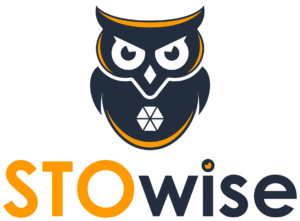Dharma, a crypto entity that operates as a bank for digital currencies, recently announced its scaling solution based on the Optimistic Roll up paradigm. The San Francisco domiciled crypto bank took the initiative to roll out its own Layer 2 (L2) design following an ecosystem growth as DeFi’s gain momentum.
“Since we launched peer-to-peer payments, scaleability has morphed from a theoretical problem for us to a pressing concern.
So we’re embarking on building a practical L2 payments system based on the Optimistic Roll-Up paradigm.”
This move comes shortly after a bear market that saw DeFi stakeholders liquidate their positions or stake more collateral. During this rush, Ethereum’s network throughput was significantly affected which eventually raised operational costs and gas prices on the blockchain. It, therefore, followed that scaling solutions ought to be implemented sooner if this market is to remain sustainable.
Based on these challenges, Dharma has released an L2 specification set to improve token transfers within its ecosystem. The main areas of focus include practicality, simplicity and time efficiency while censorship-resistance and EVM computations have been deprioritized. Notably, Dharma collaborated with Hypervisor Labs in developing its L2 design proposal.
The Optimistic roll upscaling will allow Dharma to batch token transfers into aggregate blocks which in turn create a Merkle root. Basically, this reference point is built from all single hashes on token transfers and is meant to easily detect fraud. This will be done through a one-day challenge period in which the specifications are meant to be reviewed by the contributing community. If they detect fraud, then the L2 layer is rolled back to its latest validated block and the person who had identified the shortcoming is rewarded.
In a bid to eliminate third party risk, Dharma highlighted that it will purportedly manage the L2 protocol. Other scaling options that Dharma support include Zero-knowledge proofs; the firm, however, opted for the ORU first given the immediate benefits. They include the support of Dharma Dai token and an opportunity to reduce gas costs on Ethereum by 10 times the current price.
As DeFi projects continue to grow, innovators such as Dharma are more likely to come up with tailored scaling solutions. However, only time can tell their practicality and ease of integration with existing infrastructures.
1/
Since we launched peer-to-peer payments, scaleability has morphed from a theoretical problem for us to a pressing concern.So we’re embarking on building a practical L2 payments system based on the Optimistic Roll-Up paradigm. https://t.co/dNRnQjyEVt pic.twitter.com/cyP4aPKJDW
— Dharma (@Dharma_HQ) March 30, 2020
3/
We’ve ruthlessly prioritized practicality, simplicity, and time-to-market — the system is only intended to provide scalable, non-custodial token transfers.De-prioritized are fully-robust censorship-resistance properties and general EVM computation. K
L2
S
S
.
— Dharma (@Dharma_HQ) March 30, 2020
